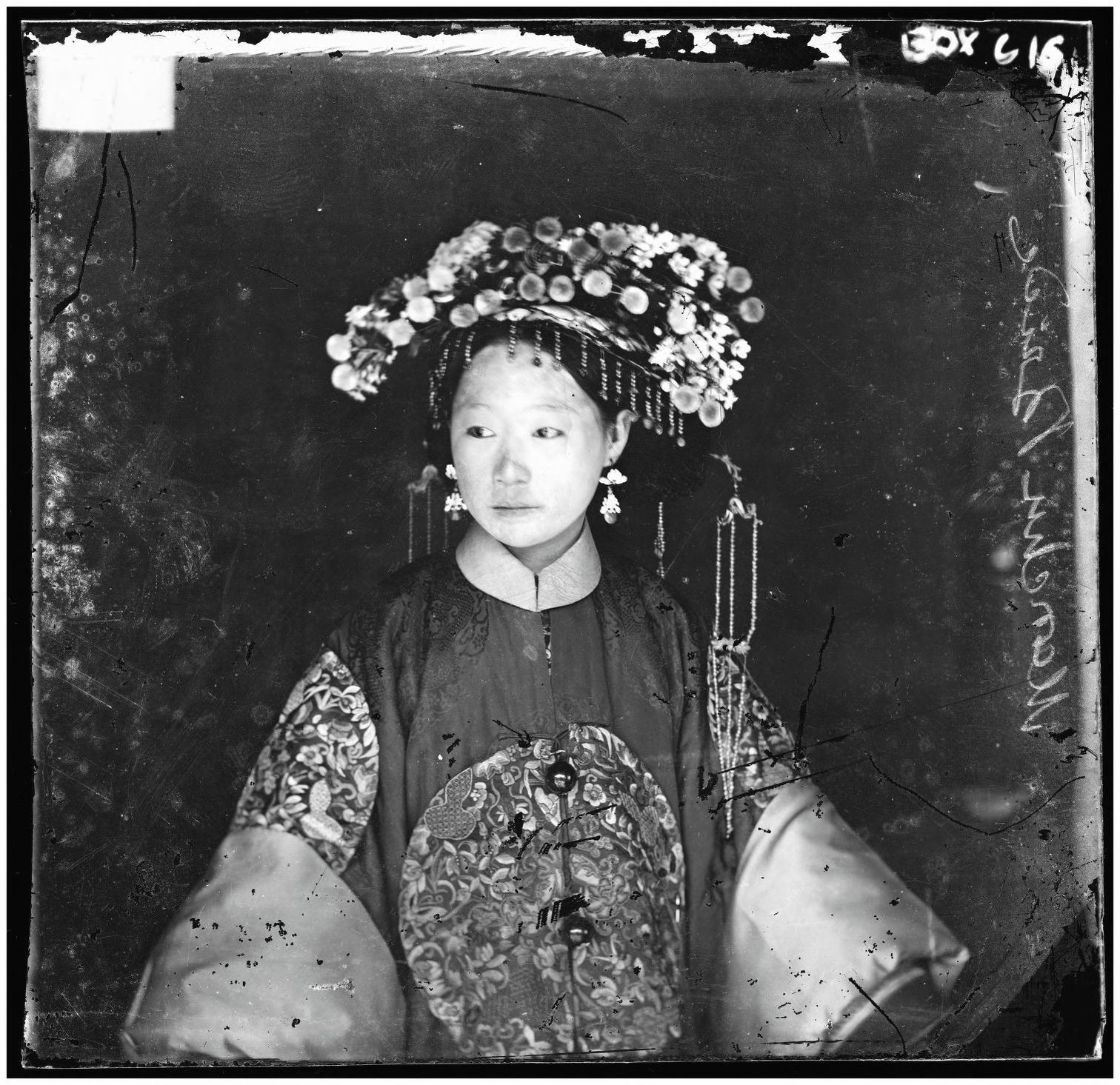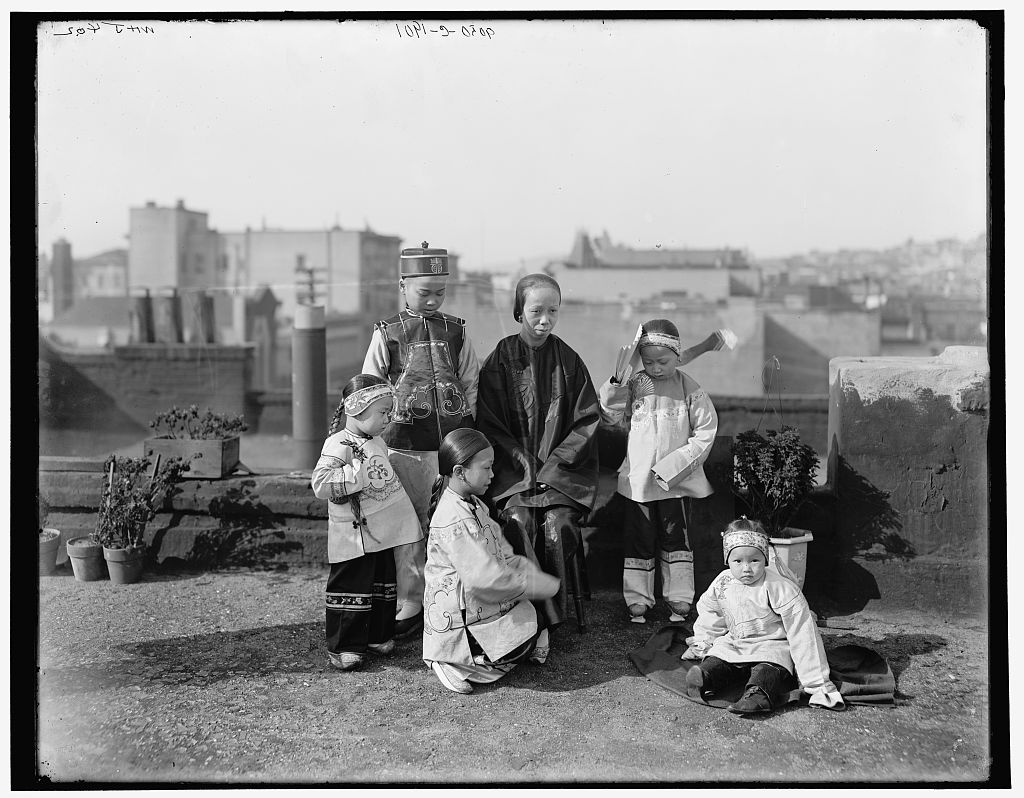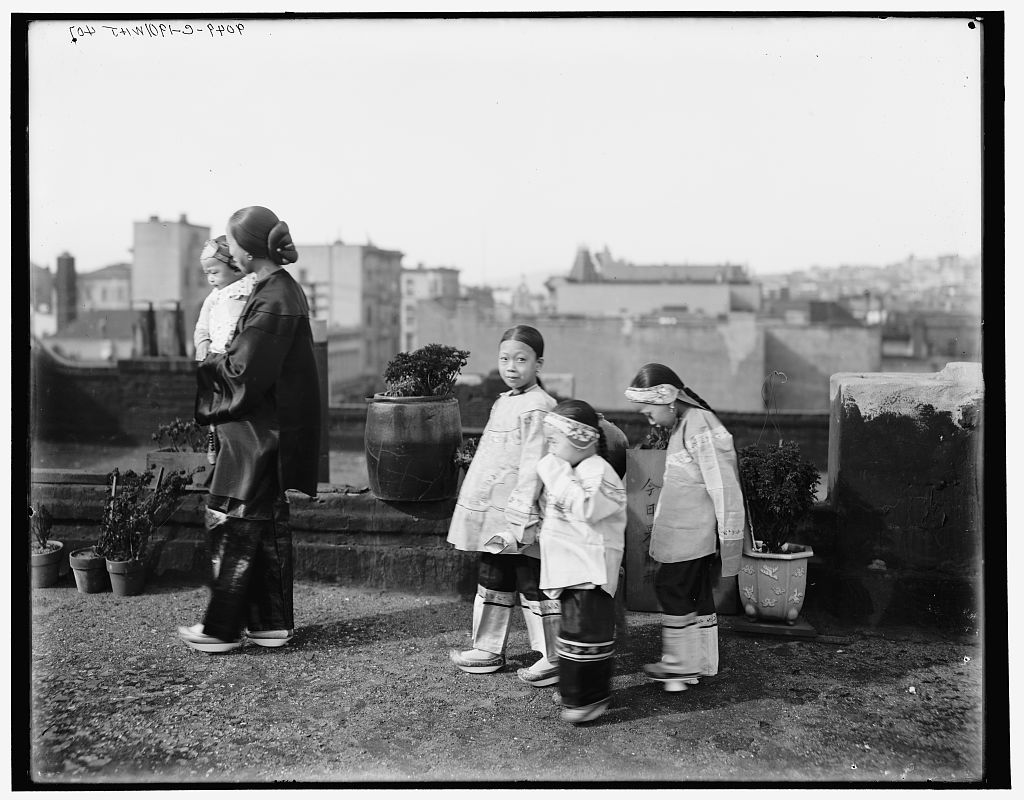
Portrait of a Manchu bride by John Thomson, 1871.
Library of Congress
Library of Congress
Chinese Women, Immigration, and the First U.S. Exclusion Law: The Page Act of 1875 Portrait of a Manchu bride by John Thomson, 1871. Library of Congress Most U.S. legislation affects men and women equally, but some laws target women specifically. The Page Act of 1875, the first restrictive federal immigration law in the U.S., was a significant barrier to Asian women who sought economic and social opportunities on American shores.
The Page Act had three main goals, all focused on preventing immigration from China, Japan, and other parts of “the Orient” (an outdated term for Asian countries). First, the law made it illegal for any U.S. citizen to bring migrants from Asia for the purpose of forced labor. Second, it also restricted the immigration of any convicted criminal who had not completed their sentence. Both provisions were, in practice, almost impossible to enforce.
The third goal of the Page Act was much easier to enforce because it focused on Asian women. While immigration officials might have trouble determining whether an individual was enslaved or a convicted criminal, it was much easier to determine that an individual was a woman.
Section 3 of the Page Act forbade the “importation” of women into the United States “for the purposes of prostitution.” The Act also gave immigration officials full authority to determine whether an Asian woman was being trafficked "for lewd and immoral purposes."
On the face of it, this law seems designed only to prevent human trafficking and forced prostitution. But when we consider the Page Act in the context of extreme anti-Asian rhetoric and violence at the time, we get a broader view of the law’s intent and impact. Although the Act applied to women from all Asian countries, its unspoken focus was on Chinese women.

Chinese women and children by William Henry Jackson,
c. 1901. Library of Congress
c. 1901. Library of Congress
Throughout the late nineteenth century, American mass media promoted the erroneous notion that Chinese people were morally inferior and thus a danger to American society. Even without clear proof that a woman was destined for prostitution, such notions made it easy for U.S. immigration officials to assume that any Asian woman was potentially a moral threat.
While the Page Act denied Asian women the opportunity for a better life in the U.S., it also affected Asian men who wanted to stay in the U.S. by preventing them from being able to marry and establish families. The lawmakers who supported the Page Act surely understood that such a restriction might help discourage Asian men from emigrating and discourage immigrant men from staying.
The Page Act also perpetuated the mistaken but very popular nineteenth-century American notion that Asians were immoral, deviant people. It helped reinforce sexualized stereotypes and misogyny towards Asian women for decades to come.
In 1882, seven years after the passage of the Page Act, the Chinese Exclusion Act would restrict the emigration of all Asian women and men to the United States. Both of these laws were in violation of the 1868 Burlingame-Seward Treaty, which explicitly granted Chinese people the right to emigrate to the U.S.[1]

Chinese women and children by William Henry Jackson,
c. 1901. Library of Congress
c. 1901. Library of Congress
The Page Act was finally repealed in 1974. In 2011, the U.S. Senate issued a statement of regret for its earlier passage of restrictive immigration laws, including the Acts of 1875 and 1882.[2]
Learn about women on San Francisco's waterfront who faced and made unimaginable choices, as they lived in the legacy of these laws, through the park's award-winning podcast Better Lives, Bitter Lies [https://www.nps.gov/podcasts/better-lives-bitter-lies.htm]. These women include Soto Shee (Episode: "Paper Children"), and Tien Fuh Wu and Jeung Gwai Ying (Episode: "Daughters of Joy")
Sources
“Additional Articles to the Treaty Between the United States of America and the Ta Tsing Empire of 18th of June, 1858,” signed 28 July 1868, ratified at Peking (Beijing) 23 November 1869. Published in William Frederick Mayers, ed. Treaties between the Empire of China and Foreign Powers. Shanghai: J. Broadhurst Tootal and London: Trübner & Co. (1877), 93-95.
Chan, Sucheng. “The Exclusion of Chinese Women, 1870-1943” in Chinese Immigrants and American Law, Vol. 1. Edited with introductions by Charles McClain. New York: Garland Publishing, Inc. (1994), 2-54.
Lew-Williams, Beth. The Chinese Must Go: Violence, Exclusion, and the Making of the Alien in America. Cambridge: Harvard University Press (2018).
Mckeown., Adam. “Transnational Chinese Families and Chinese Exclusion, 1875-1943.” Journal of American Ethnic History (Winter 1999), 73-110.
Peffer, George Anthony. If They Don’t Bring Their Women Here: Chinese Female Immigration before Exclusion. Urbana: University of Illinois Press (1970).
U.S. Congress. Senate. An Act Supplementary to the Acts in Relation to Immigration (Page Law). Sect. 141, 18 Stat. 477, 3 March 1875. http://memory.loc.gov/cgi-bin/ampage?collId=llsl&fileName=022/llsl022.db&recNum=506
U.S. Congress. Senate. Expressing the regret of the Senate for the passage of discriminatory laws against the Chinese in America, including the Chinese Exclusion Act. S Res. 201. 112th Cong., 1st Session. Agreed to Senate October 6, 2011. Congressional Record. Volume 158, Issue 92 (18 June 2012). https://www.govinfo.gov/content/pkg/CREC-2012-06-18/pdf/CREC-2012-06-18-pt1-PgH3715-2.pdf
[1] https://en.wikisource.org/wiki/Burlingame_Treaty
[2] https://www.govinfo.gov/content/pkg/BILLS-112sres201is/html/BILLS-112sres201is.htm
